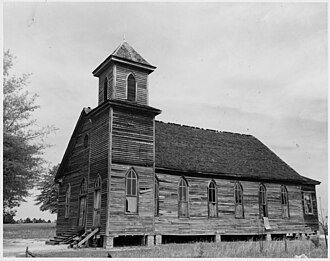There’s a hidden form of racism within the church that often goes unspoken. Many Black people have been led to believe that “white” churches, or those led by white pastors, are somehow more “holy” or legitimate than Black churches. This belief is a subtle but powerful form of manipulation. It’s heartbreaking to watch how our people continue to be whitewashed, losing touch with the rich spiritual heritage that has sustained us for generations.
I want to discuss this further, as it truly needs to be addressed. I can admit that the first time I worshipped with people outside my race was at 19 years old. Growing up as a Gullah ooman in the Lowcountry of South Carolina, I attended predominantly Baptist or AME churches—places rich with tradition, community, and deep spiritual roots.
Now, don’t get me wrong, it’s a beautiful thing when people of all colors come together to worship Jesus Christ. But the real issue lies beneath the surface. Racism is often covered up, and uncomfortable topics are swept under the rug because many pastors don’t want to reveal their true colors.
I’ve heard the parking lot conversations. I know many know the truth, but keep it behind closed doors. Black people have long been celebrated for our strong vocals and our ability to write songs full of soul and lived experience. This is where we are often used, especially in many Contemporary Christian Music (CCM) churches.
If you look closely, many of these churches feature Black worship leaders prominently. Yet, it’s rare to see Black pastors in the administration or pastoral leadership team. That absence is a subtle slap in the face. It raises the question: Are we only valued for our voices when it’s time to sing, but sidelined when it comes to speaking God’s truth, even when that truth might challenge or disturb the majority of the congregation?
This dynamic isn’t just disappointing; it’s damaging. It sends a message that Black voices are only welcome in ways that entertain or uplift superficially, but not when it comes to addressing the hard, sometimes uncomfortable truths that faith calls us to confront.
It’s also important to recognize how this dynamic affects the spiritual health of Black Christians. When leadership doesn’t look like us or fully understand our cultural context, it can lead to feelings of invisibility and disconnect. The rich history of the Black church—built on struggle, resilience, and authentic worship—is a foundation that too many have been pressured to leave behind to fit into a “whitewashed” version of Christianity.
We must challenge this status quo. The church should be a place where all voices are heard, valued, and empowered. Leadership teams need to reflect the diversity of the body of Christ, not just in numbers but in influence and authority. Black pastors and leaders must be given the platform to speak boldly, to teach truthfully, and to guide authentically.
Enough is enough. It’s time for the church to confront these uncomfortable truths openly and honestly. Black Christians deserve not only a seat at the table but a voice that’s heard and respected in every aspect of church life, from worship to leadership to ministry.


Leave a Reply